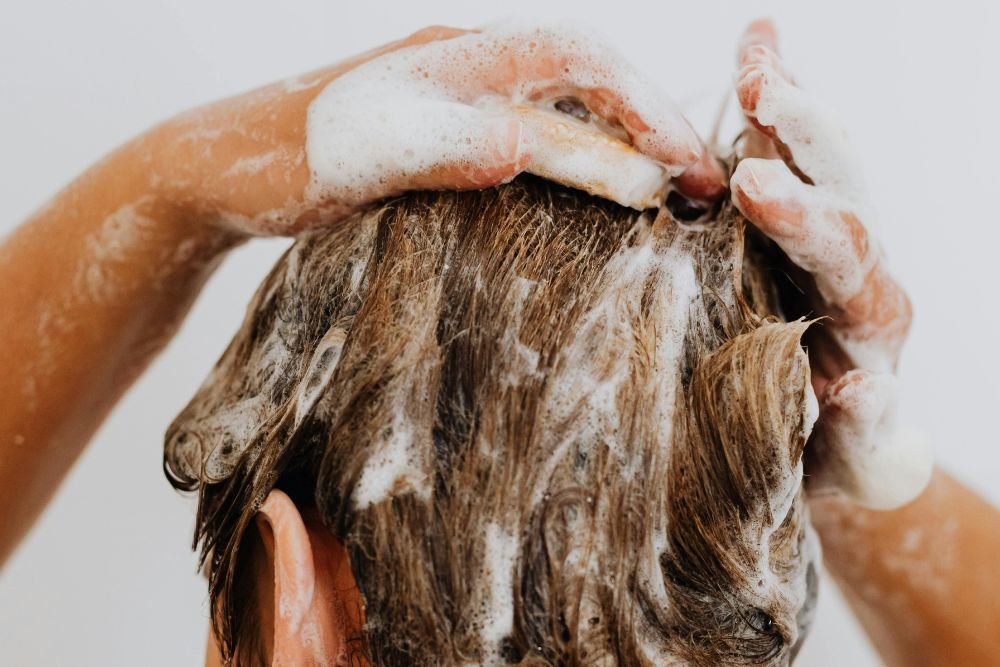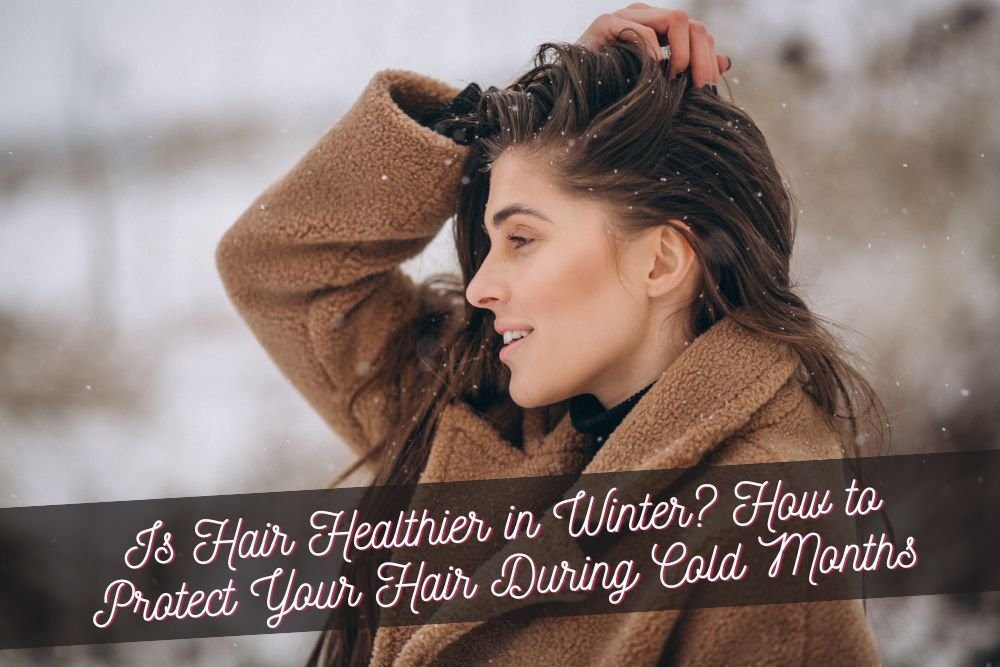Is hair healthier in winter? Discover how to boost your hair’s health with effective winter hair care strategies.
Winter can be a challenging time for maintaining hair health. With temperature drops and changing humidity levels, our hair goes through a lot during the colder months.
This article explores how cold weather affects hair health and provides actionable tips to keep your locks strong and vibrant throughout the season.
Table of Contents
The Impact of Cold Weather on Hair Health
Cold weather affects hair health in various ways, ranging from reduced moisture to increased scalp issues. Understanding these effects can help you adapt your hair care routine effectively.
1. Dryness and Brittleness: The Winter Hair Struggle
When winter arrives, the humidity levels in the air decrease significantly. Low humidity means less moisture in the air, which can lead to dry and brittle hair.
Dry air absorbs moisture from the hair, leaving it vulnerable to breakage and split ends.
Another contributing factor is indoor heating. Most people turn on their heating systems to combat the cold, but these systems reduce indoor humidity even further.
This dry, heated air can strip the natural oils from your hair, causing it to look dull and lifeless. Without adequate moisture, the hair shaft becomes fragile, making it easier for breakage to occur.
- Tip: To counteract this, use a humidifier indoors to add moisture back into the air, helping to maintain hair hydration.
Revitalize your hair this winter! Try this natural formula now—Click here to learn more!
2. Scalp Issues During the Winter Months

Your scalp can suffer just as much as your hair during winter. The dry, cold air can lead to a dry and flaky scalp, often resulting in dandruff.
The scalp loses its natural moisture, leading to irritation and itchiness.
In response to this dryness, the scalp may start to produce more oil to compensate.
This overproduction can result in greasy hair if not managed properly, creating a frustrating cycle of dryness and oiliness.
- Tip: Consider using a gentle shampoo that balances scalp oils without stripping moisture. Also, avoid hot showers, as they can exacerbate scalp dryness.
3. Temperature Fluctuations: The Hidden Culprit
One of the most significant factors affecting cold weather hair health is the constant temperature change between cold outdoor air and warm indoor environments.
This fluctuation can stress the hair cuticle, the outer layer of the hair shaft. When the cuticle is stressed, it can lift, leading to increased moisture loss and potential hair damage.
In addition to this, dry winter air often causes static electricity, resulting in flyaways and frizz. This is particularly common in fine or straight hair types, where static can make hair difficult to manage.
- Tip: Use a leave-in conditioner or hair serum to help smooth the cuticle and reduce static.
The Positive Effects of Winter on Hair Health
While winter presents many challenges, it also offers some surprising benefits for hair health. By focusing on protective styling and enhanced hair care, you can actually use this season to your advantage.
1. Reduced Sun Damage and Hair Fading
Winter means less exposure to direct sunlight, which can be beneficial for your hair. UV rays from the sun can damage the hair cuticle and lead to color fading, especially in chemically treated hair.
With less sun exposure in winter, your hair can retain its color longer and sustain less overall damage.
- Tip: Even in winter, it’s a good idea to use hair products with UV protection if you spend time outdoors, as UV rays can still penetrate clouds.
2. Opportunity for Protective Styles
Cold weather encourages the use of protective hairstyles, such as braids, buns, or updos. These styles help minimize your hair’s exposure to harsh elements, reducing manipulation and breakage.
Protective styles can also help retain moisture, which is crucial in drier climates.
Wearing hats and scarves can also protect your hair from the cold, but it’s essential to choose the right materials.
Wool and cotton can cause friction, leading to breakage, so opt for silk or satin-lined hats to reduce damage.
- Tip: Before wearing a hat, apply a light oil or serum to the ends of your hair to lock in moisture.
Want stronger, healthier hair? Experience our nutrient-rich product—Learn more today!
Winter Hair Care Practices to Improve Hair Health
Maintaining healthy hair in cold weather requires an adapted hair care routine. Here are some essential practices to follow.
1. Increase Moisture With Hydrating Products
Investing in moisturizing shampoos and conditioners is a must during winter. These products help replenish lost moisture and maintain the hair’s natural oils.
Look for ingredients like argan oil, shea butter, and glycerin, known for their hydrating properties.
Additionally, incorporating deep conditioning treatments into your routine can make a significant difference.
A weekly deep conditioner can restore moisture, improve elasticity, and make hair more resilient against winter dryness.
- Tip: For an added boost, use a hair mask with nourishing ingredients like honey and avocado.
2. Nutritional Support for Healthier Hair
Your diet can play a crucial role in maintaining hair health during winter. The cold season often prompts people to consume more nutrient-rich foods, like soups and stews, which can be beneficial for hair health.
Nutrients like omega-3 fatty acids, vitamins A and E, and biotin are essential for a healthy scalp and strong hair.
Hydration is equally important. Although we may not feel as thirsty in winter, staying hydrated is vital for maintaining moisture levels in the hair and scalp.
- Tip: Drink plenty of water and consider adding a biotin or fish oil supplement to support hair health.
Combatting Winter Hair Damage: Effective Strategies
Addressing the challenges of cold weather hair health requires a proactive approach. Here are some strategies to keep your hair looking its best:
1. Reduce Heat Styling
Using heat tools like blow dryers, flat irons, and curling wands can exacerbate winter dryness. Limit heat styling to once a week or opt for heat-free styling methods, like braiding damp hair for waves or using foam rollers.
- Tip: If you must use heat tools, always apply a heat protectant spray to minimize damage.
2. Choose the Right Hair Accessories
Avoid using hair ties with metal parts or accessories that can snag and break your hair. Instead, choose soft scrunchies or fabric-covered bands that are gentle on your hair.
Additionally, using a silk pillowcase can reduce friction while you sleep, preventing breakage and maintaining your hair’s natural moisture balance.
- Tip: Switch to a silk or satin scarf when wrapping your hair at night for added protection.
Conclusion: Is hair healthier in winter?
Cold weather can present numerous challenges for hair health, from dryness and brittleness to scalp issues and increased frizz.
However, with the right hair care routine, these negative effects can be minimized, and even turned into opportunities for improved hair strength and growth.
Invest in moisturizing products, embrace protective styles, and pay attention to your diet and hydration to keep your hair healthy during winter.
With a little extra care, your hair can thrive, even in the coldest months.

